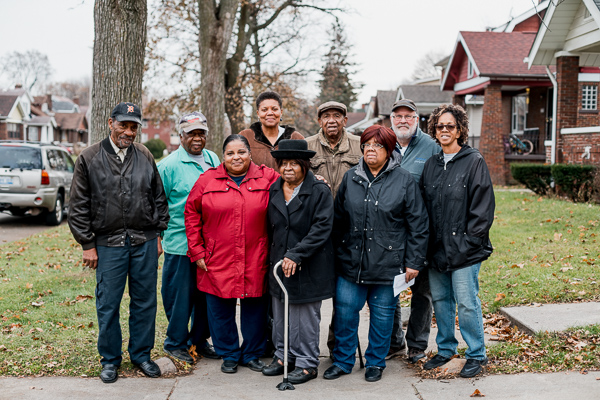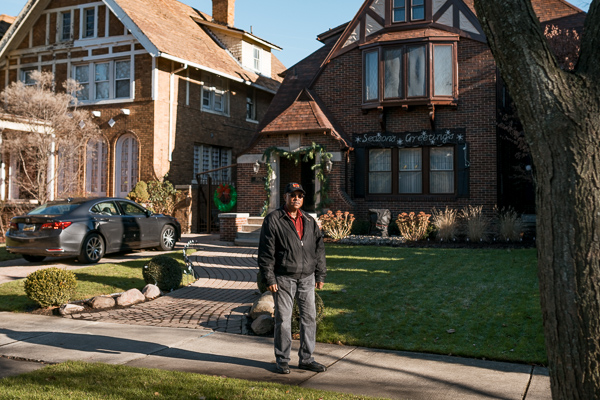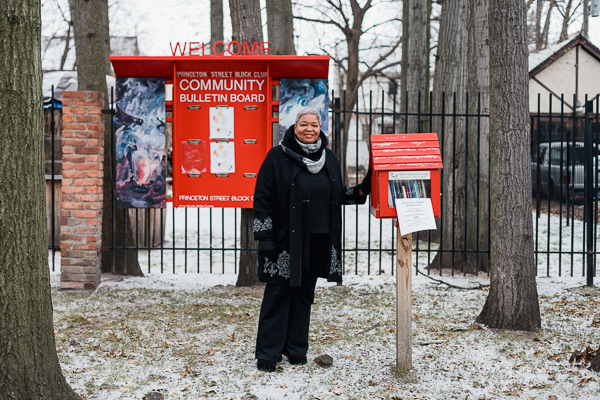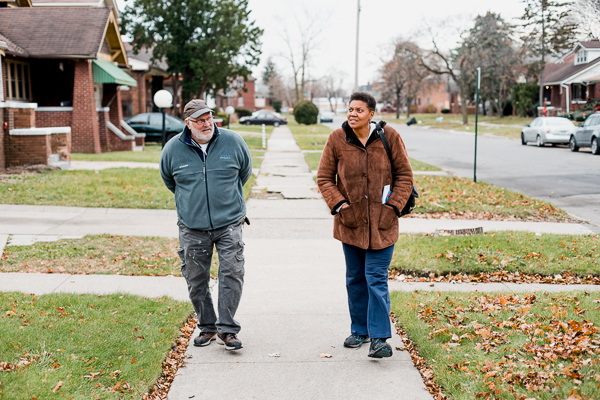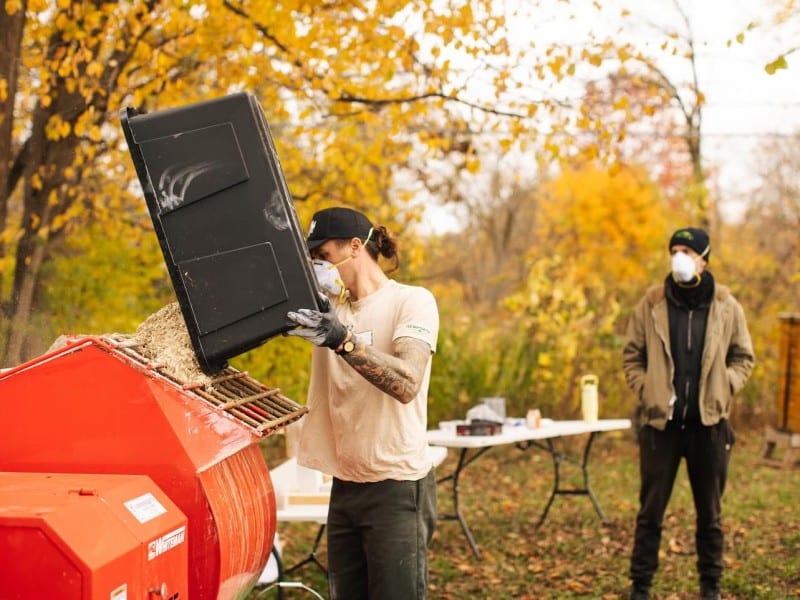With few resources, block clubs find ways to stabilize and rejuvenate communities across Detroit
While not exciting like a new business or app, block clubs have quietly stabilized neighborhoods, provided residents with opportunities, and brought neighbors closer together.
Denise Kennedy knew no one on her block when she moved into her home on Princeton Street in Martin Park several years ago. She was alone, recovering from an illness, and about to sleep a house she never intended to live in that sat between two vacant houses.
She was so scared she slept in the unrenovated upstairs portion of the house. “I’ll never forget my first night in that house,” Kennedy says.
To alleviate her loneliness and fear, she was determined to meet her neighbors. She’d go on walks with her dog Teddy twice a day, talking to people along the way, and soon discovered a deep need for connection amongst her new neighbors. That’s why she restarted the dormant Princeton Street Block Club in October 2014.
17 people showed up to their first meeting, many of whom formed the core of the block club, which recently celebrated its three-year anniversary.
Princeton Street has done much to revitalize the three blocks it oversees in northwest Detroit, from distributing food and books, boarding up vacant homes, building a community board, organizing neighborhood cleanups, and much more.
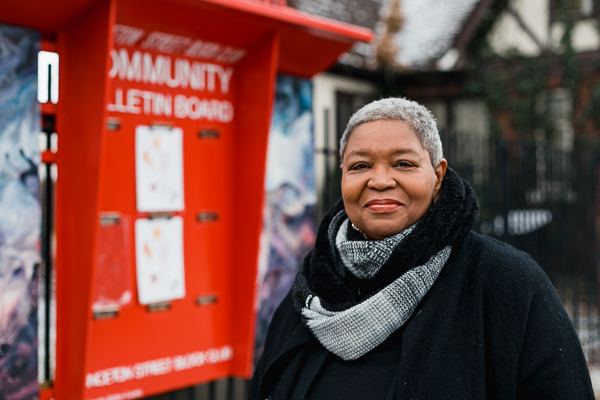
“We’ve now become a true neigobhrood, caring for each other,” Kennedy says.
Block clubs are one of the smallest ways residents organize, but they’re also one of the most essential. While not sexy like a new business or app, block clubs have quietly stabilized neighborhoods, provided residents with opportunities, and brought neighbors closer together.
Connecting residents
On the small section of Birwood Street between Grand River Avenue and I-96, a window had been intentionally broken, and residents knew who did it. But thanks to the close ties between members of the Birwood Street Block Club, no one called the police. Instead, they talked to the perpetrator and resolved the matter internally.
“We didn’t have any issues after that,” says Kim Sherobbi, whose family purchased their house on Birwood Street in 1958. “Community safety is really based upon the relationships that are developed over time. The best kind of policing is through people getting to know each other and looking out for each other, not from the police department.”
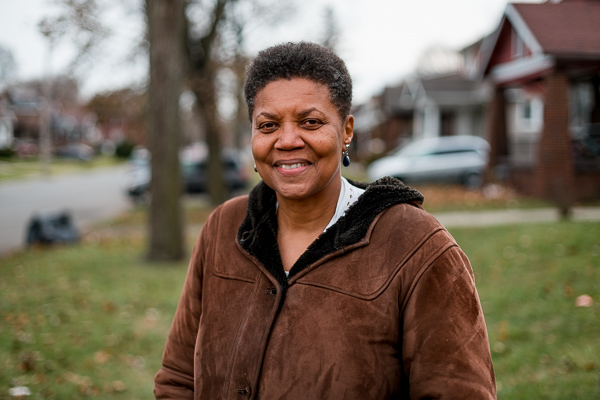
The Birwood Street Block Club was established in 1969 and many of its members have been active for years. Sherobbi estimates that 60 percent of the residents that the block club covers have lived in their house for over 40 years, including Dorothy Harris and Shirley Holland, block club President and Treasurer respectively, both 77 years old.
The newest—and at 62 and 58 years old, two of the youngest—members of the block club are Carl and Robin Zerweck, who moved to Detroit from Texas seven years ago, and into their home on Birwood Street in 2014.
“Before we moved here, I asked if it would be appropriate to do that. We didn’t want to be perceived as some white folks inserting or asserting ourselves in the community,” Carl Zerweck says. “Fortunately [Harris and Holland] said, ‘Sure, come ahead.'”
The Zerwecks also founded Rippling Hope, which sponsors mission trips and helps secure home improvement grants through its connection to block clubs around the city. And it’s one of the ways the Zerwecks have contributed to the neighborhood. Vacancy is an issue on the street—of the approximately 80 properties on the three blocks, Carl estimates that close to 15 are vacant or abandoned.
In 2015, during a national gathering of the Evangelical Lutheran Church in America, some 30,000 youth came to Detroit to volunteer. Rippling Hope engaged some to paint designs on a couple hundred blocks of plywood to use for boarding up vacant properties. Many of these slabs made their way to Birwood Street.
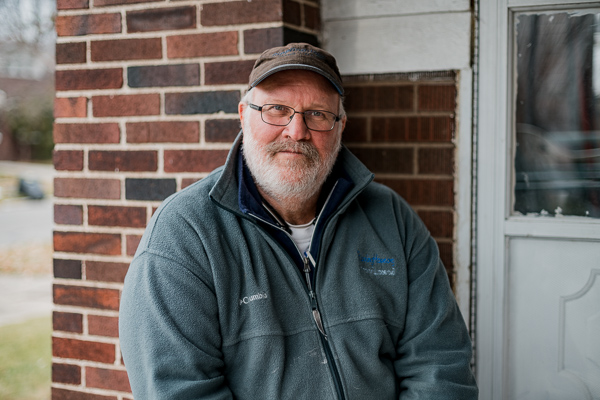
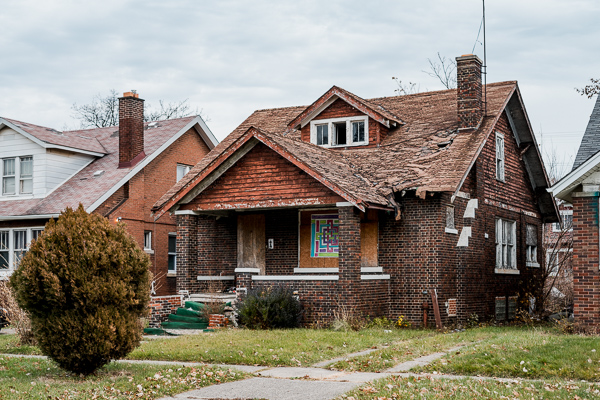
The block club has also implemented a robust system of maintenance for these properties. Various block club members have adopted houses to watch, cut the grass, and generally take care of them. They also set up a shared neighborhood toolshed through a grant from the Community Legal Services where members pay a $10 fee for use of the lawnmower, rakes, and other landscaping tools.
“If the grass is high and house not kept well, it makes difference in terms of how it impacts people psychologically,” Sherobbi says. “When homes don’t look well kept, sometimes it comes across that people don’t care and that brings a certain element into the neighborhood.”
They’ve also been trying to get the city of Detroit to demolish these properties, almost none of which are salvageable, and have a plan for future use of each. One would become a community garden, another two green spaces, and three adjacent properties a community gathering space with an exercise area, playground, and picnic tables.
Given all the shared spaces, resources, and interventions, the Birwood Street Block Club is an especially tight group. When someone is sick, members bring food. When someone has a birthday, they get a card. And when someone dies, their family gets flowers.
“There’s a warmth and care and love that we feel through the block club,” says Harris.
Towards a common cause
Block Clubs are also an important organizing tool, allowing members to pool resources, skills, and expertise towards common goals. That’s how it’s always been with the La Salle Gardens community, a historic neighborhood just north of Grand Boulevard Avenue west of Rosa Parks.
“As this neighborhood transitioned from white to black, you found a lot of professional and upwardly mobile folks move in,” says Rudolph Markoe, whose family was the first black one on the block when they moved there in 1950. “There were very active, motivated people who lived in this area back then. And they had a lot of good connections.”
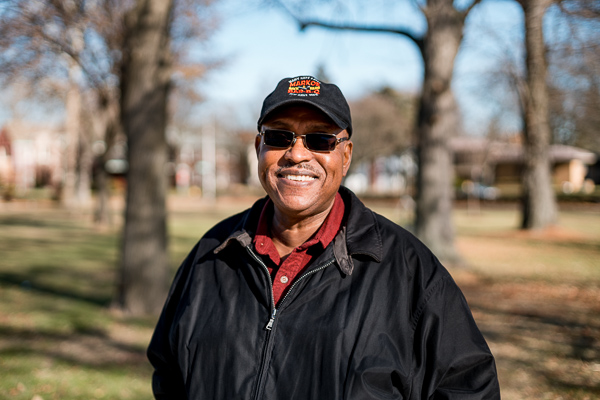
Established in the early 1960s, the La Salle Gardens Block Club is perhaps the longest continuously operating in the city. When the neighborhood was more affluent, residents could leverage their influence with city officials to get things done. Now, they rely on each other.
While La Salle Gardens does much of what other active block clubs do—organizing neighborhood events, cleanups, and connecting residents—they’ve been focusing much of their energy on repairing the park’s historic street lights. The city, however, wants to dismantle them and install less attractive light poles.
That’s why Markoe started the La Salle Gardens Community Association last year, which encompasses four neighboring block clubs; he felt more robust organizing was needed around this issue.
“The old lights, when they worked, lit the street and most of the park,” he says. “These new ones are more suited for parking lots.”
The block club and community association are currently in talks with the city to resolve the issue.
The organization and civic action made possible by a block club allows a neighborhood to access resources that might otherwise be out of reach. Kennedy at Princeton Street has been especially capable at this.
“I’ve been to so many meetings, people think I’m something that I’m not,” she says. “I’m just an ordinary woman who wanted a good quality of life for my neighborhood.”
Through brown bag lunches facilitated by Community Development Advocates of Detroit and meeting people at other events, Kennedy secured one-on-one mentoring in best practices with Shamyle Dobbs, now the CEO of Michigan Community Resources. She convinced Dan Pitera, Executive Director of the Detroit Collaborative Design Center, to provide workspace in his organization’s office for the block club. She even got Mayor Mike Duggan to visit and talk during one of their monthly meetings.
Though Kennedy will be stepping down as President in early 2018, her and other block club members are a testament to what committed, organized residents can bring to their neighborhood.
This article is part of “Detroit Innovation,” a series highlighting community-led projects that are improving the vitality of neighborhoods in Detroit, while recognizing the potential of residents to work with partners to solve the most pressing challenges facing their communities.
The series is supported by the New Economy Initiative, a project of the Community Foundation for Southeast Michigan that’s working to create an inclusive, innovative regional culture.
All photos by Nick Hagen.
